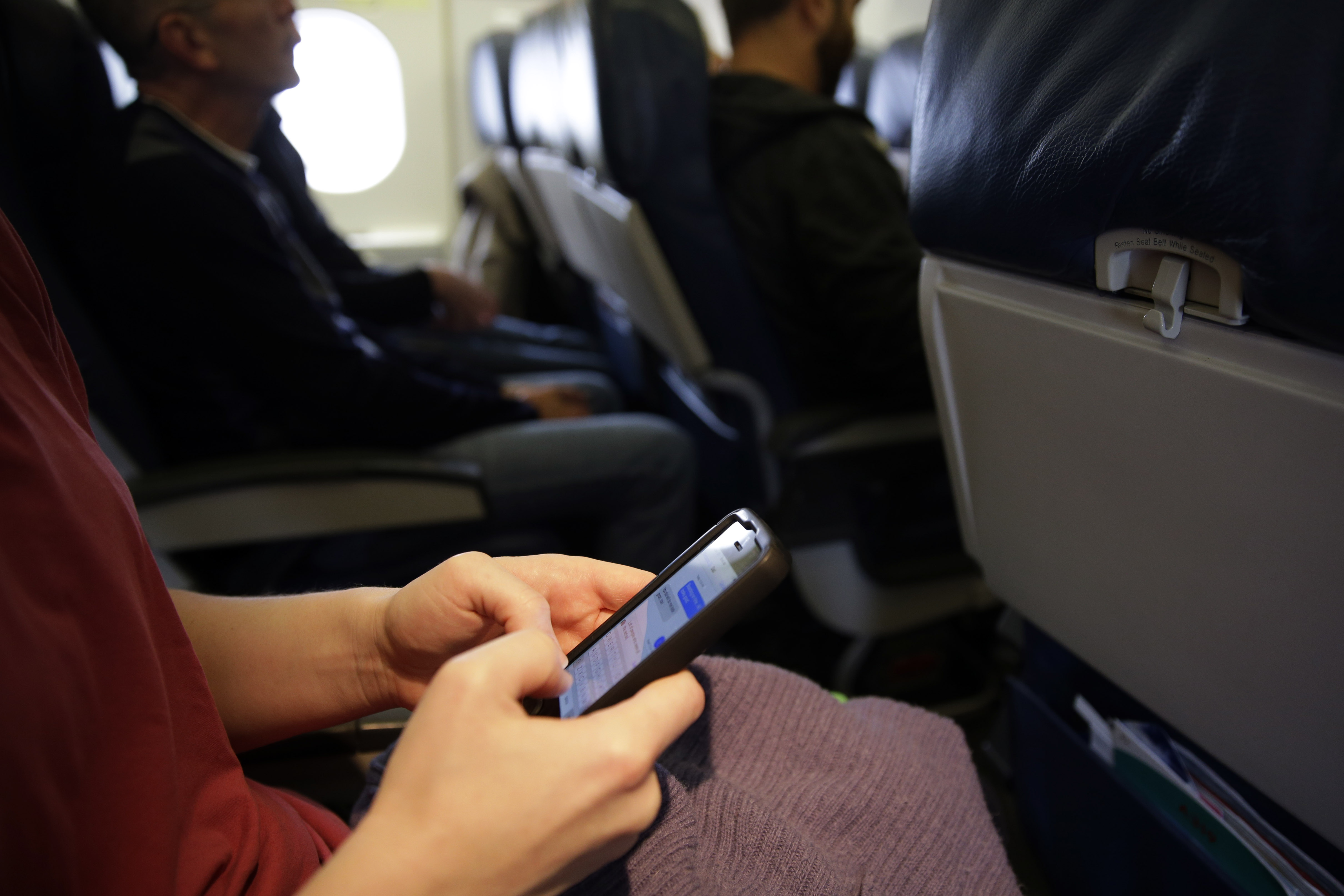 A passenger checks her cellphone after boarding a flight in Boston. For the past decade fliers haven't been able to use electronic devices while planes are below 10,000 feet because they might interfere with cockpit instruments, but the Federal Aviation Administration declared Thursday that interference isn't a concern anymore.
A passenger checks her cellphone after boarding a flight in Boston. For the past decade fliers haven't been able to use electronic devices while planes are below 10,000 feet because they might interfere with cockpit instruments, but the Federal Aviation Administration declared Thursday that interference isn't a concern anymore.NEW YORK - A day after setting off an uproar among travelers opposed to the idea of in-flight phone calls, the chairman of the Federal Communications Commission Chairman backtracked, saying he personally isn't in favor of calls on planes.
"We understand that many passengers would prefer that voice calls not be made on airplanes. I feel that way myself," chairman Tom Wheeler said in a Friday statement.
The role of the FCC, he added, is to advise if there is a safety issue with using phones on planes. Amending the agency's rules "will be only a technical advisory." The decision to allow calls will ultimately rest with the airlines, Wheeler emphasized.
Just three weeks into his job, Wheeler struck a nerve with travelers Thursday when he said it was time for the agency to review "our outdated and restrictive rules" about mobile services on airplanes. The rules have been in place for 22 years. A tentative agenda for the FCC's Dec. 12 meeting, posted Thursday, listed the proposed revision. It was the first the public heard of the change.
Wheeler seemingly underestimated the public outrage and media attention that such a move would generate.
"It struck a nerve ... their phones have been ringing," said Craig Aaron, president of Free Press, a consumer advocacy group. "It's a lot of attention for an agency that usually doesn't get that much attention."
By Friday afternoon, Wheeler's language was much more subdued. The new message: "The job of the FCC with respect to this issue is limited to issues related to communications technology."
Wheeler emphasized that "our proposal does not impose any requirement that airlines should provide voice connectivity." And to hammer home the point, the word "not" was underlined.
"We believe that airlines are best positioned to make such decisions," he said in a statement. Requests for an interview were declined by his spokesman.
Most airlines have said they would study the issue and survey their customers. Delta Air Lines was the only carrier to outright reject voice calls, regardless of what the FCC decides.
A petition opposing the FCC's move posted on the White House website attracted nearly 1,250 signatures by Friday afternoon.
Posted by a self-described frequent flier from Richmond, Va., it said: "Forcing (passengers) to listen to the inane, loud, private, personal conversations of a stranger is perhaps the worst idea the FCC has come up with to date ... I think the administration needs to nip this in the bud."
With reports from Chris Rugaber in Washington D.C.
